
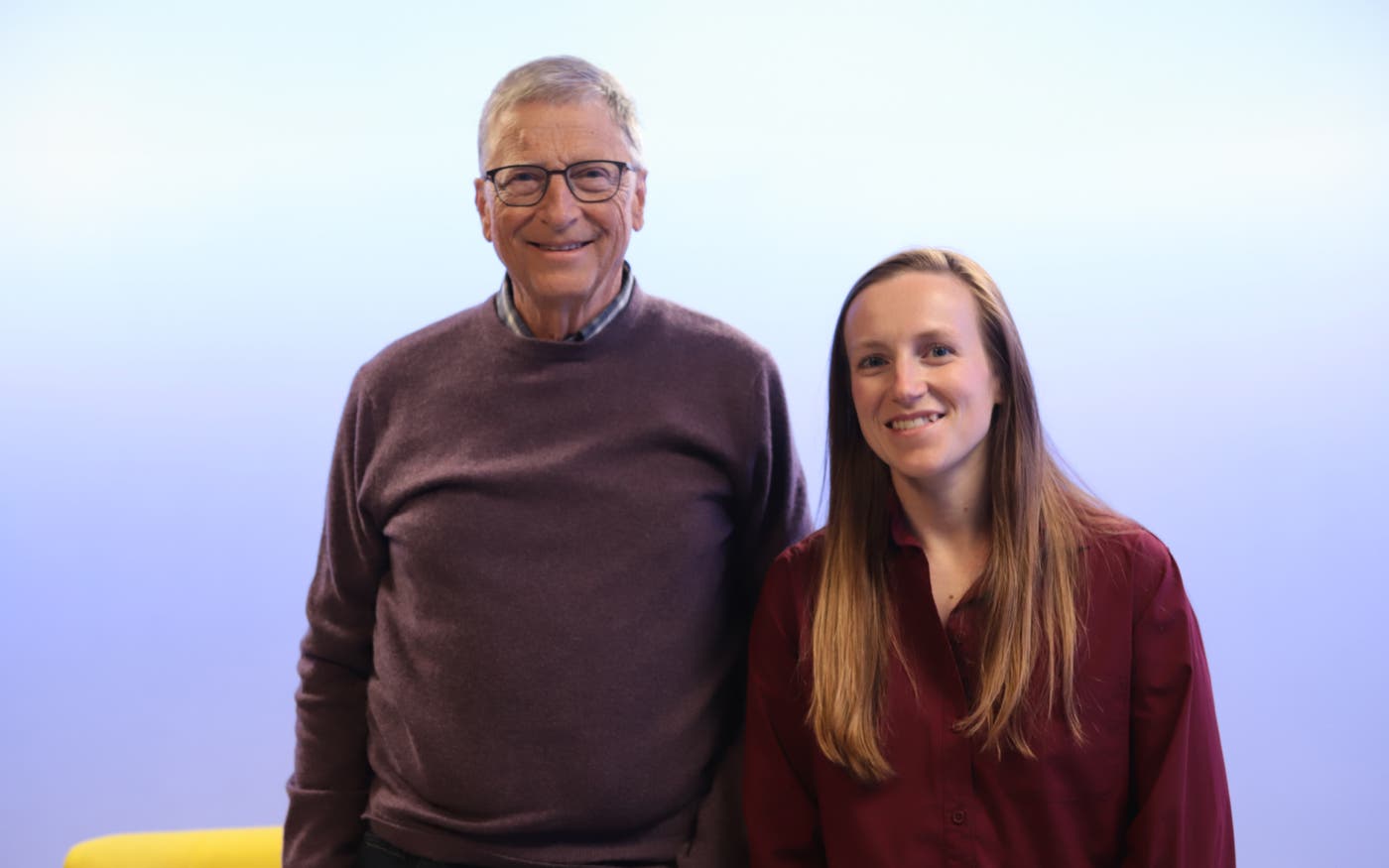
Unconfuse Me with Bill Gates
Hannah Ritchie will make you optimistic about climate change
In the latest episode of my podcast, I talked to author and researcher Hannah Ritchie about why there are more reasons for hope than one might think.

When I start to feel overwhelmed by the climate challenges we face, I turn to Hannah Ritchie, a researcher at Our World in Data. Her data-driven approach is an essential antidote to environmental doomsday-ism and provides some much-needed optimism about humanity’s ability to tackle big problems. I recently sat down with Hannah to talk about her terrific new book Not the End of the World, why it’s so hard to wrap our minds around human progress, what we would ask a time traveler about the future, and more.
Unconfuse Me with Bill Gates
My conversation with Sam Altman
In the sixth episode of my podcast, I sat down with the OpenAI CEO to talk about where AI is headed next and what humanity will do once it gets there.

If you ask people to name leaders in artificial intelligence, there’s one name you’ll probably hear more than any other: Sam Altman. His team at OpenAI is pushing the boundaries of what AI can do with ChatGPT, and I loved getting to talk to him about what’s next. Our conversation covered why today’s AI models are the stupidest they’ll ever be, how societies adapt to technological change, and even where humanity will find purpose once we’ve perfected artificial intelligence.
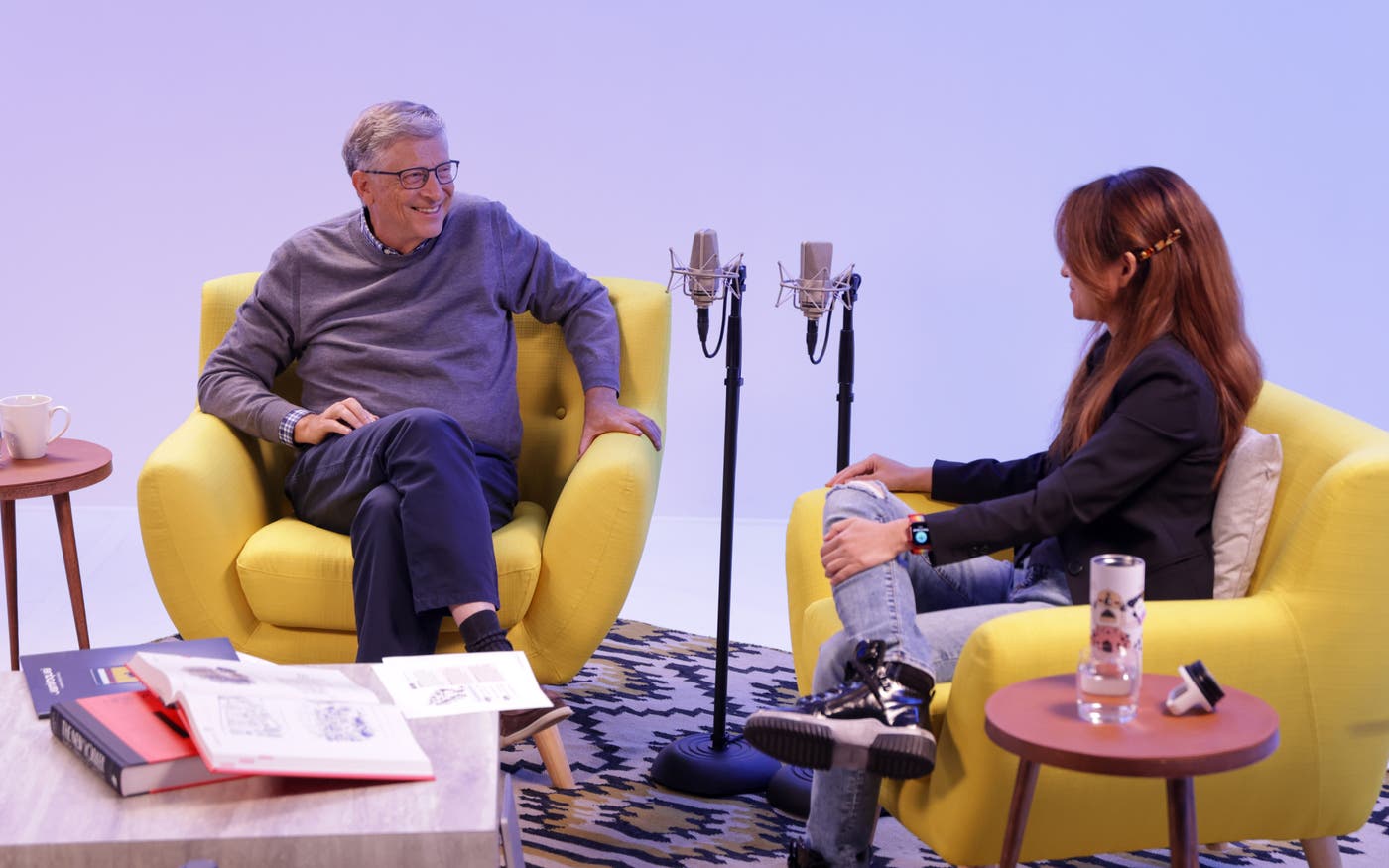
Unconfuse Me with Bill Gates
Breaking down the science of AI with Yejin Choi
In the fifth episode of my podcast, Yejin Choi joined me to talk about her amazing work on AI training systems.

Few people are better at explaining the science of artificial intelligence than Yejin Choi. She’s a computer science professor at the University of Washington, senior research director at the Allen Institute for AI, and the recipient of a MacArthur Fellowship. I thought her recent TED talk was terrific, and I was thrilled to talk to her about how you train a large language model, why it’s so hard for robots to pick tools out of a box, and why universities must play a key role in the future of AI research.
Unconfuse Me with Bill Gates
Languages are weird. John McWhorter helped me understand why
In the fourth episode of my podcast, I asked linguist, professor, and author John McWhorter to help unconfuse me about the quirks of language.

I recently started learning French, and the process has made one thing clear to me: There’s a lot I don’t understand about how languages work. So, I turned to John McWhorter, a linguist who has dedicated his career to demystifying the roughly 7,000 languages spoken around the world. When he isn’t busy writing books, John is a professor at Columbia University, host of his own podcast, and frequent lecturer for Great Courses. He helped me understand why English is so irregular, what the ideal language would look like, why all dialects are created equal, and more.
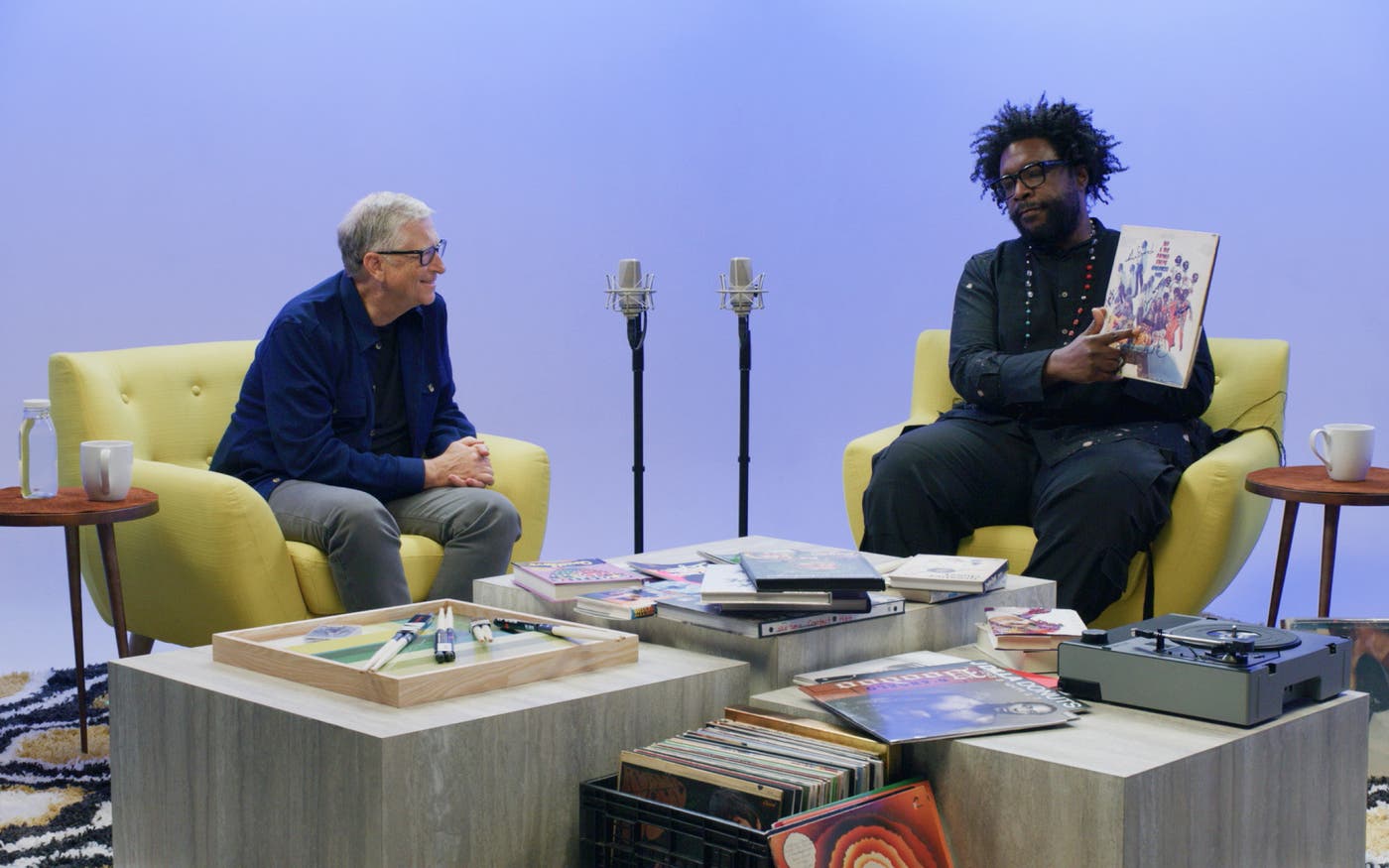
Unconfuse Me with Bill Gates
Why Questlove and I believe plant-based meat is the future
In the third episode of my podcast, I sat down with Ahmir “Questlove” Thompson to talk about the future of food, our Wordle scores, and more.

Ahmir “Questlove” Thompson is the ultimate multi-hyphenate: He’s a musician, filmmaker, author, entrepreneur, and more. The Grammy and Oscar winner is also a plant-based foods advocate, so when I had some questions about the future of food, I knew I had to sit down with him. We had a blast talking about why he made a meatless Philly cheesesteak, how we make healthy food accessible to more people, Questlove’s insane record collection, how we got our nicknames, and our Wordle strategies.
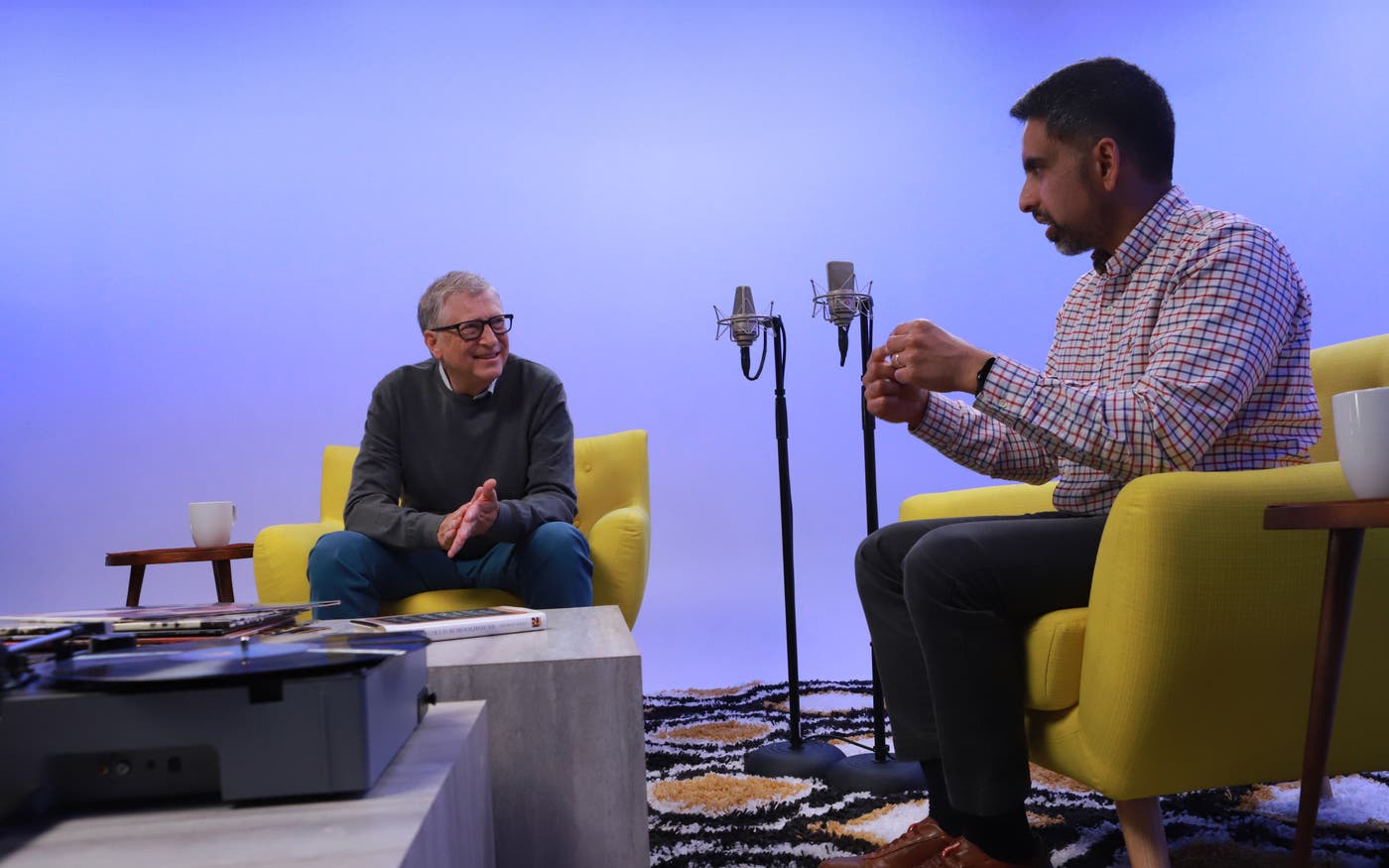
Unconfuse Me with Bill Gates
Can AI help close the education gap? Sal Khan thinks so
In the second episode of my new podcast, I sat down with the founder of Khan Academy to talk about how artificial intelligence will transform education.

Sal Khan is a true pioneer of harnessing the power of technology to help kids learn. So, when I wanted to learn more about how artificial intelligence will transform education, I knew I had to talk to the founder of Khan Academy. I loved chatting with Sal about why tutoring is so important, how his new service Khanmigo is making the most of ChatGPT, and how we can keep teachers at the center of the classroom in the age of AI. We even found time to talk about our favorite teachers and the subject we wish we’d studied in school.
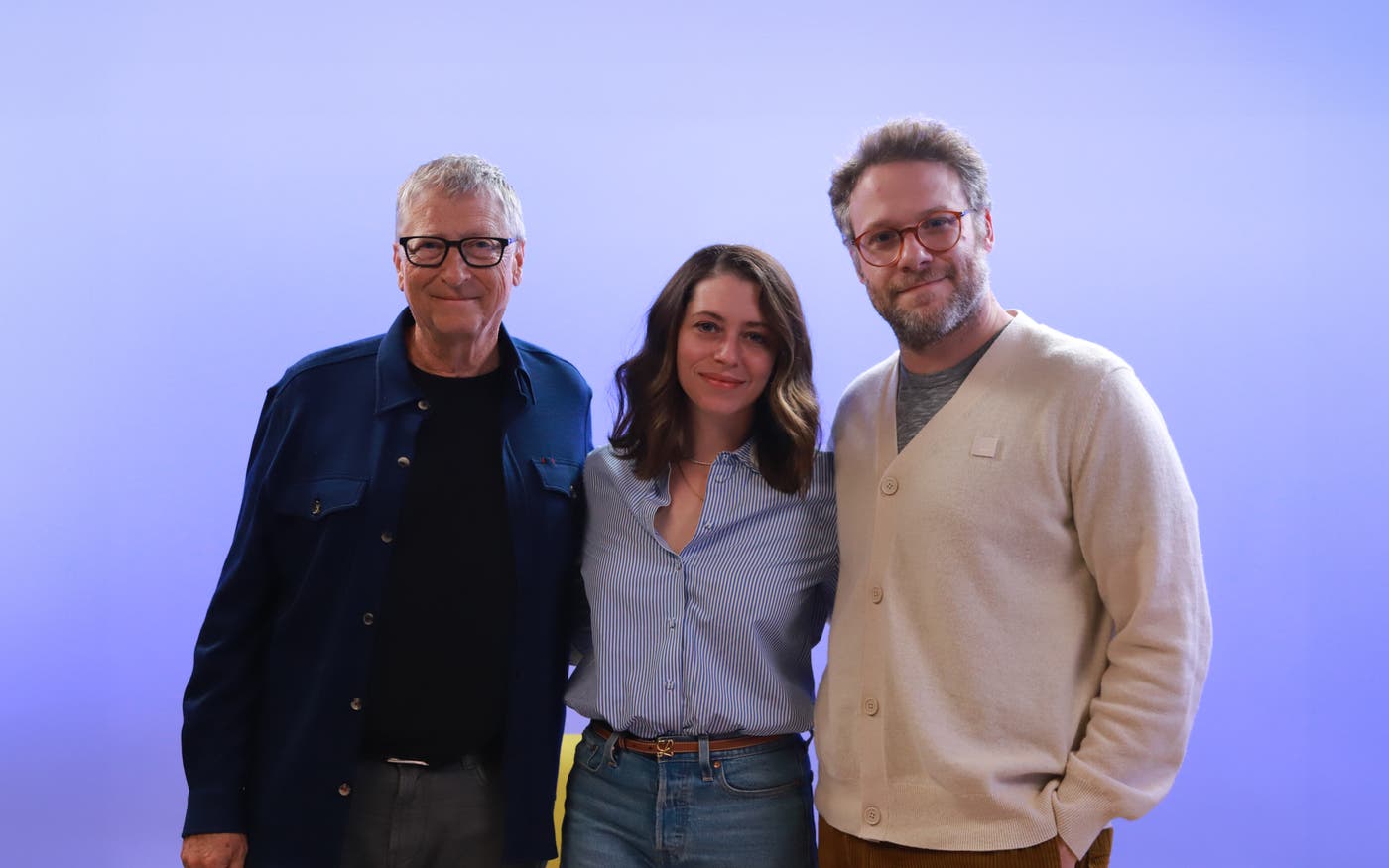
Unconfuse Me with Bill Gates
Talking Alzheimer’s, comedy, and marijuana with the Rogens
In the first episode of my new podcast, I asked Seth Rogen and Lauren Miller Rogen to help me understand how Alzheimer’s can be funny.

Can Alzheimer’s disease be funny? I was skeptical, especially given the devastating experience my family had watching my dad suffer from it. So, I asked two experts in using humor to raise awareness—Seth Rogen and Lauren Miller Rogen—to help me see the light. We had a great conversation about their organization Hilarity for Charity, hope for the future of Alzheimer’s research, the importance of a good night’s sleep, and why Seth started a cannabis lifestyle company.
Episode five
Can people really change?
In our podcast’s season finale, we talk to Bono and Kerry Washington about what it takes to change hearts and minds.

Over the last four episodes, Rashida and I have explored questions that are fundamentally about change: Will things be different after Covid-19? Can society become more equal? Can (and should) people stop lying? Will we make the changes needed to stop a climate disaster?
In the season finale of our podcast, we decided to explore the question that underlies our whole series and ask ourselves, “Can people really change?”
This is a particularly interesting year to think about in terms of change. On the one hand, I think it’s safe to assume we’re all ending the year at least a little different than we started it. The pandemic will leave a lasting imprint on all of us, just as older generations were forever changed by World War II—and life will never be the same for people who lost a loved one. On the other hand, 2020 has made it clear how polarized society has become and how set so many people seem to be in their beliefs. Both Rashida and I are worried about how this polarization could make the progress we’ve talked about in previous episodes more difficult to achieve.
Our guests this week are two people who are using their positions as artists to change the world for the better: Bono and Kerry Washington. I’ve known Bono for a long time, and he’s been an invaluable partner in the fight against HIV/AIDS. I hadn’t met Kerry before (although I’m a fan of Scandal), but I knew she was an outspoken advocate for racial justice, voter suppression, and other issues.
It was fascinating to hear both of them talk about how they use their creative endeavors to push for change. I’m glad that they’re bringing so much public attention to important issues. Our conversation was a good reminder that there are a lot of different ways you can help make the world a better place.
It’s been a lot of fun working on this project, and I hope you’ve enjoyed listening to it.
Episode four
Is it too late to stop climate change?
In the fourth episode of our podcast, we debate whether people should be optimistic about preventing a climate disaster.

Rashida Jones isn’t very optimistic about climate change. She’s not alone. Lots of people are skeptical about our ability to prevent a climate disaster—but I’m not one of them. In the latest episode of our podcast, I tried to convince Rashida that there’s hope for the future of our planet if we take the right steps. Our fourth episode is all about a question with massive implications: is it too late to stop climate change?
I’ve written a lot about why I think we can avoid the worst effects of climate change here on this blog (and in my upcoming book). But the reality is that, even if we do all the right things and prevent a disaster scenario, we’re already seeing the effects of climate change.
When I talk about the impacts of climate change, I usually focus on how it will affect people. Our guest this week is Elizabeth Kolbert, who has a deep understanding of how a changing planet is also hurting animals, plants, and even entire ecosystems. She’s been writing about climate change for the New Yorker for the last two decades. I loved her first book, The Sixth Extinction, and I was excited to hear that she’s working on a follow-up that will be released in the spring.
Rashida and I also discuss what actions each of us can take to make a difference (including whether or not you should buy carbon offsets, paper straws, or organic produce). The biggest changes need to happen at the governmental and societal levels, but you have a lot of power as an individual—although maybe not in the way you think.
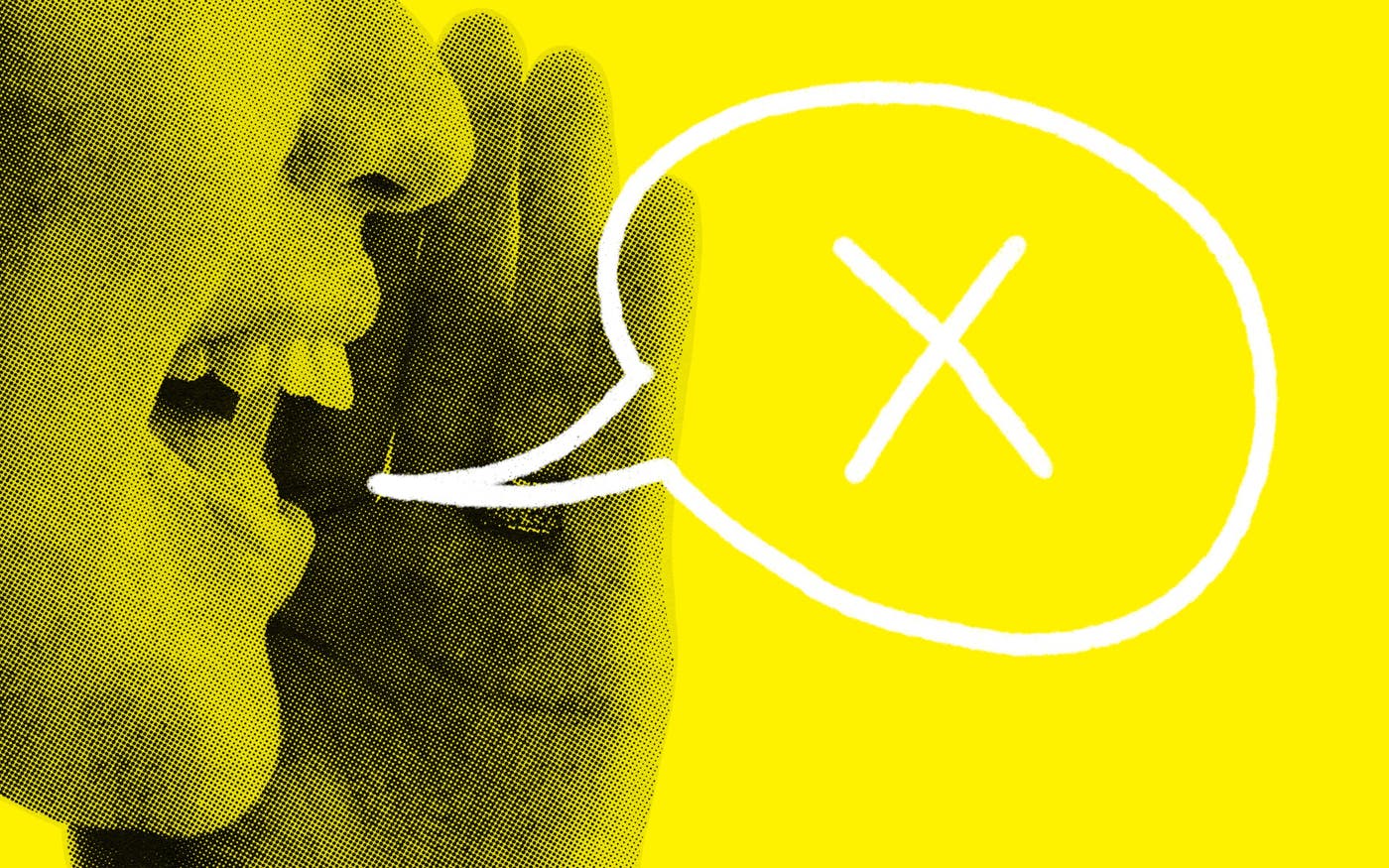
Episode Three
Why do we believe lies?
In the third episode of our podcast, we talk to Yuval Noah Harari about humanity’s relationship with the truth.

Most modern societies place a high value on truth and honesty—but people can’t seem to resist falsehoods, from little white lies to vast conspiracy theories. In our third podcast episode, Rashida and I attempt to answer a question that feels like it has taken on extra relevance this year: why do people believe lies?
If you’ve followed the news this year, it probably won’t surprise you that I’ve become very curious about why people spread lies or believe things that are untrue. But beyond my personal connection, I’m super fascinated by the role that falsehoods have played in shaping human societies. Israeli historian Yuval Noah Harari is one of the best people in the world to talk to about this, so we invited him to join us.
I’m a huge fan of Yuval, and Rashida and I geeked out over our mutual love of his books the first time we met. If you aren’t familiar with his work, Yuval has written popular books about humanity’s past, present, and future. He explained to Rashida and me how Homo sapiens’ ability to create myths and fictions is the very thing that has enabled us to create communities.
Take Denmark, for example. No animal on Earth knows that Denmark exists other than humans. Denmark—like all other countries, including the United States—is an elaborate myth that we have collectively decided to believe. But this myth enables Danes to organize a society that provides benefits to its people.
The entire episode isn’t about mythology, of course. Rashida and I also talk about COVID conspiracy theories, the role social media plays in spreading misinformation, and the one lie I choose to believe even though I know it’s not always true. We had a lot of fun trying to figure out the truth about the truth.
If you’ve finished listening and are interested in hearing more from Yuval, you’re in luck. The evening after we finished recording this episode, Yuval sent us a follow-up note about the relationship between lies and conspiracy theories, which you can read here. I hope you find it as thought-provoking as I did.
Episode two
Is inequality inevitable?
In the second episode of our podcast, Rashida and I discuss what it’ll take to build a more equal society.

The COVID-19 pandemic has been difficult for everyone, but it’s been a lot harder for some. Here in the United States, we’ve seen how huge gaps in income, access to healthcare, and quality of education are being exacerbated by these extraordinary times. In the second episode of our podcast, Rashida and I ask a big question that has never felt more urgent: is inequality inevitable?
Melinda and I started our foundation twenty years ago because we believed that everyone everywhere deserved an equal opportunity to thrive. But in order to address inequities, you need to know exactly where—and for whom—they exist. Few people understand these issues in the United States better than Harvard economist Raj Chetty. Rashida and I were pleased he could join us to talk about his groundbreaking research on economic mobility, which measures a person’s ability to move up the income ladder.
Raj’s data provides fascinating and often surprising insights into where opportunity exists on the neighborhood level. I was particularly interested in his findings about two areas in central Los Angeles: Watts and Compton. Even though their neighborhoods are mere miles apart and demographically similar, a child born in a very low-income family in Compton is much more likely to earn a decent income, avoid incarceration, and escape poverty than one born in Watts.
We asked Compton’s mayor, Aja Brown, to come on the podcast and help us understand why. I am so impressed by the work she’s done to make her city better, especially her gang intervention program. Even though many of the initiatives Mayor Brown has created might not work in every city, civic leaders and policymakers can learn a lot from her about assessing and addressing a community’s specific needs. Compton’s success gives me hope for the future.
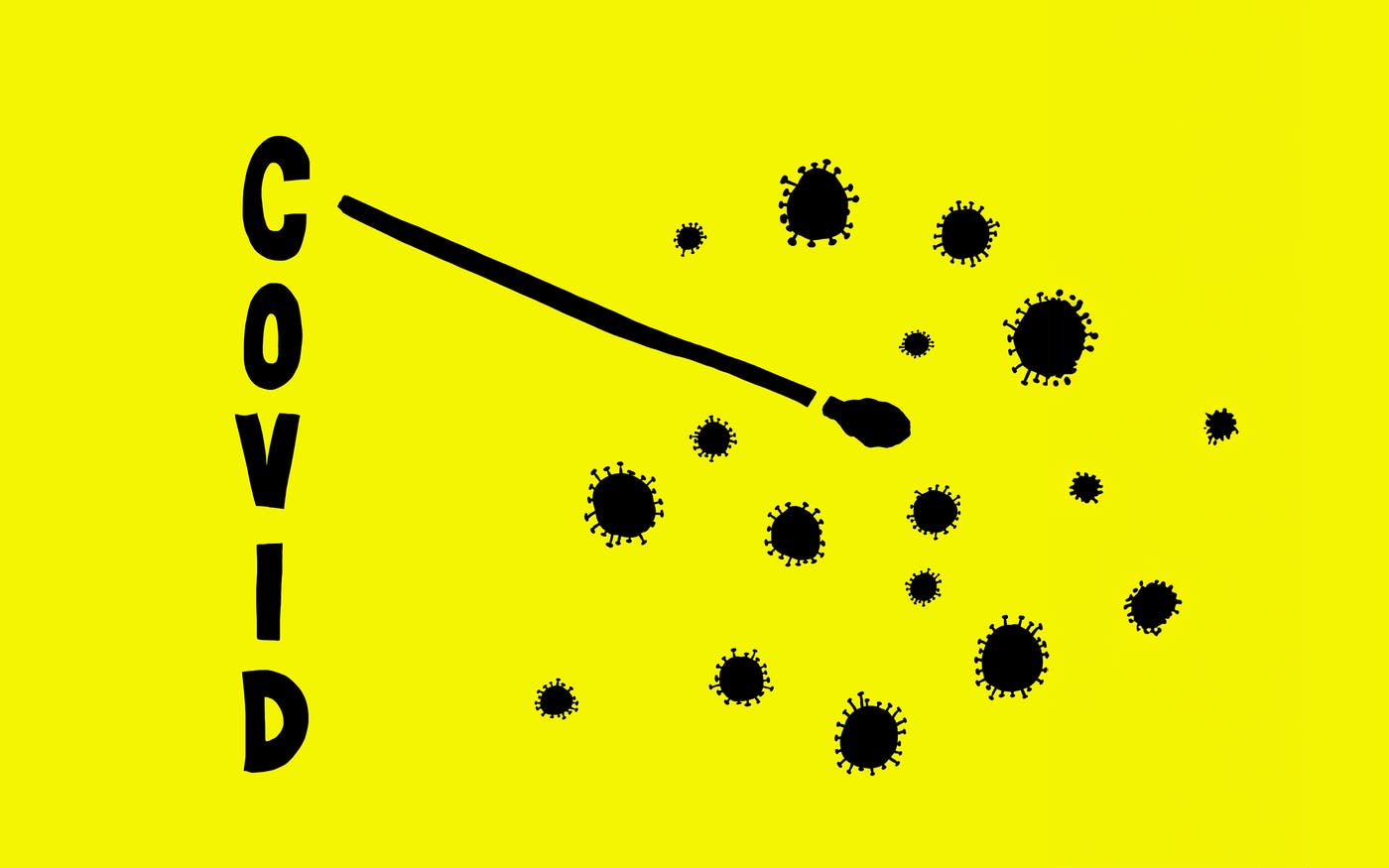
Episode one
What will the world look like after COVID-19?
The first episode of Bill Gates and Rashida Jones Ask Big Questions is all about the pandemic.

Like a lot of people, I have really gotten into listening to podcasts over the last year. They’re such an immersive way to learn about the world, and I like how the format lets you dive as deep on a topic as you want. So, I was inspired to start one of my own—but I knew I couldn’t do it on my own.
I couldn’t ask for a better partner on this project than Rashida Jones. A mutual friend suggested that the two of us might have a lot to talk about, and it turned out he was right. I already knew she was a talented actor, but I was impressed by her thoughtful perspective on the world. So, we decided to start a podcast that lets us think through some of today’s most pressing problems together. In our first episode, Rashida and I explore a big question that is top of mind for many people: what will the world look like after COVID-19?
I know it’s hard to imagine right now while new cases are surging around the world, but there will come a time when the COVID-19 pandemic is behind us. I think it’s safe to assume that society will be changed forever, given how disruptive the virus has been to virtually every part of our lives.
Unfortunately, we still have a long way to go before life truly gets back to “normal.” Rashida and I were joined by Dr. Anthony Fauci, the director of the National Institute of Allergy and Infectious Diseases, to discuss what to expect in the months to come. I’ve had the opportunity to work with Dr. Fauci on a number of global health issues over the years, including the quest for an HIV vaccine and cure. He’s such a quiet and unassuming guy normally, so it’s been wild to watch him become a huge celebrity.
Dr. Fauci and I are both optimistic that a vaccine will bring an end to the pandemic at some point in the near future. But what the world looks like after that is a lot less clear. I suspect that some of the digitization trends we’ve seen—especially in the areas of online learning, telemedicine, and remote work—will become a regular part of our lives. I hope this episode leaves you hopeful about the future and curious about what comes next.


